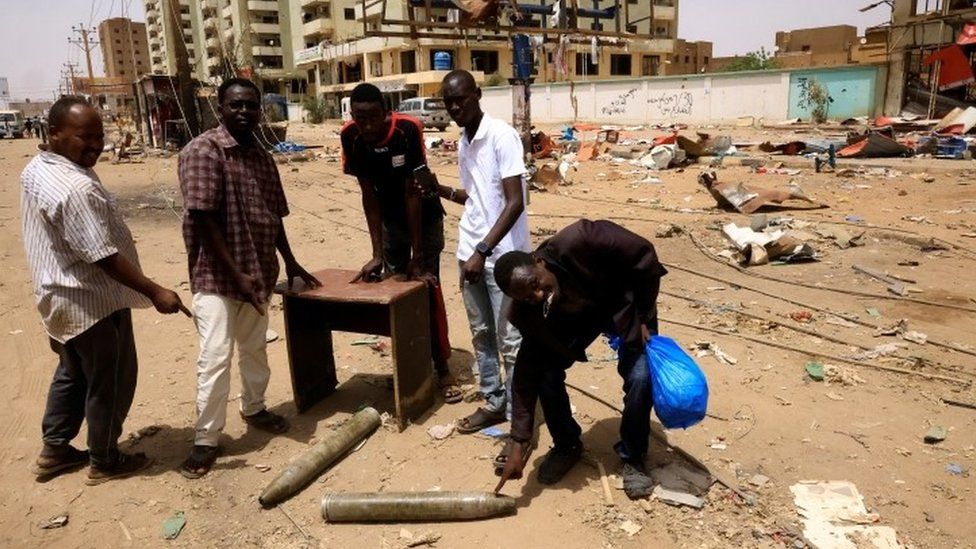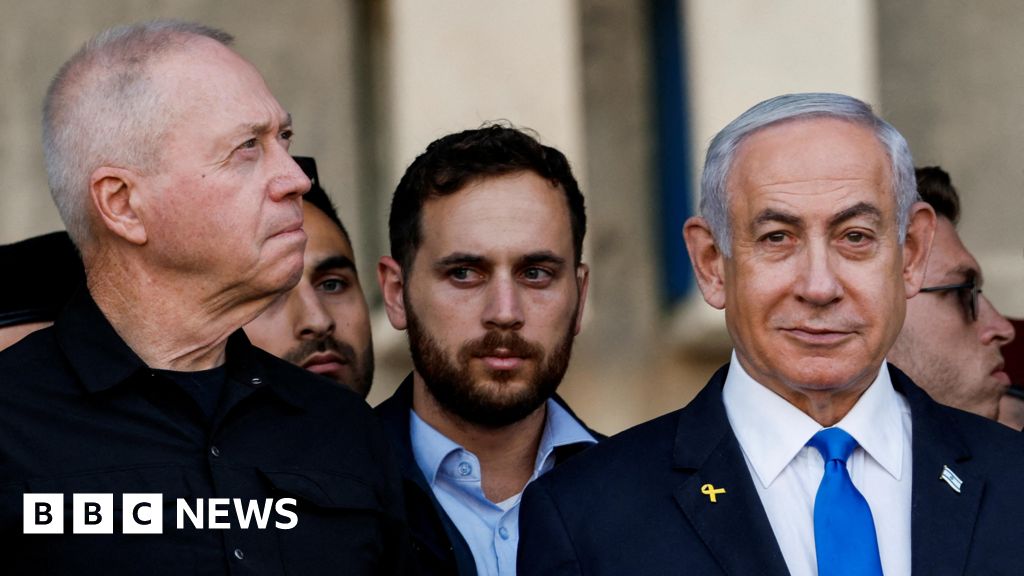ARTICLE AD BOX
 Image source, Reuters
Image source, Reuters
People have used the relative lull in fighting to go outside their homes
By Robert Greenall
BBC News
A three-day ceasefire in Sudan is set to end at 22:00 GMT with heavy fighting taking place in the capital Khartoum.
Diplomatic efforts are continuing to extend the truce, and one side - the regular army - has agreed to do so.
The break in the fighting has allowed thousands of people to attempt to flee to safety, while dozens of countries have tried to evacuate their citizens.
Almost two weeks of fighting between the army and a rival paramilitary group have left hundreds dead.
The US, UK, United Nations and neighbouring countries have been pushing for a continuation of the ceasefire, and South Sudan has offered to host peace talks.
US Secretary of State Antony Blinken said Washington was "very actively working" to extend the truce, adding that while imperfect it had reduced violence.
But White House spokeswoman Karine Jean-Pierre later said the situation could worsen at any moment.
On Thursday evening the Sudanese army agreed to an extension, to take effect from midnight (22:00 GMT) when the current ceasefire expires. There has been no response as yet from paramilitary Rapid Support Forces (RSF).
But the group and eyewitnesses said the army had been pounding its positions in Khartoum.
Fighting has also been reported in the western Darfur region and other provinces.
At least 512 people have been killed in the fighting and almost 4,200 injured, although the real number of deaths could be much higher.
The World Health Organisation (WHO) said it expected there to be "many more" deaths due to outbreaks of disease and a lack of services.
Health officials say most hospitals in conflict areas are not functioning, and more than 60% of health facilities in Khartoum are inactive.
An army statement quoted by Reuters new agency said it had taken control of most of Sudan's regions but "the situation is a bit complicated in some parts of the capital".
It has not been possible for the BBC to verify the army's claims.
Foreign nations, including the UK, have been urging their citizens to leave the country before the ceasefire expires.
Speaking on Thursday evening, Ms Jean-Pierre urged Americans to leave within the next 24 hours.
Evacuations are continuing, but many foreigners are still stuck in Sudan. Some have struggled to get to the airstrip used for evacuations.
Local civilians are continuing to flee the capital, where there are problems with supplies of food, water and fuel.
The fighting broke out on 15 April as the result of a bitter power struggle between the regular army and RSF.
Army commander Gen Abdel Fattah al-Burhan and RSF chief Gen Mohamed Hamdan Dagalo, better known as Hemedti, disagree about the country's proposed move to civilian rule, and in particular about the timeframe of the 100,000 strong RSF's inclusion into the army.
Both factions fear losing power in Sudan because on both sides there are men who could end up at the International Criminal Court for war crimes committed in Darfur almost 20 years ago.
Watch: Emotional reunions across the world as evacuees arrive home from Sudan

 1 year ago
20
1 year ago
20








 English (US)
English (US)